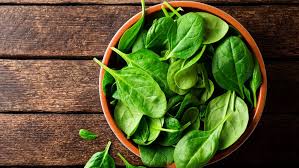Spinach, a vibrant green leafy vegetable, holds immense power when it comes to transforming your diet and enhancing your overall health. From boosting immunity to promoting heart health and aiding in weight management, the nutritional benefits of spinach are undeniable. Let’s delve into the myriad ways in which incorporating spinach into your diet can have a positive impact on your well-being.

Introduction to Spinach
In a world where processed foods often dominate our plates, incorporating nutrient-dense leafy greens like spinach is crucial for maintaining optimal health. With its origins dating back to ancient Persia, spinach has been revered for centuries for its culinary and medicinal properties.
Nutritional Profile of Spinach
Spinach is packed with essential nutrients, including vitamins A, C, and K, as well as folate, potassium, and magnesium. Its low-calorie content makes it an ideal choice for those looking to add more nutrients to their diet without excess calories.
Spinach as a Source of Iron
One of the most notable nutritional aspects of spinach is its iron content. While spinach contains non-heme iron, which is not as easily absorbed as heme iron found in animal products, pairing it with vitamin C-rich foods can enhance iron absorption.
Boosting Immunity with Spinach
Spinach is rich in antioxidants such as beta-carotene and vitamin C, which play a crucial role in strengthening the immune system and protecting the body against oxidative stress.
Promoting Heart Health
Regular consumption of spinach has been linked to improved heart health, thanks to its high levels of potassium and magnesium, which help regulate blood pressure and support cardiovascular function.
Supporting Digestive Health
The fiber content in spinach aids in digestion and promotes regularity. Additionally, the presence of antioxidants and anti-inflammatory properties in spinach may help alleviate symptoms of digestive disorders.
Weight Management Benefits
Due to its low-calorie density and high fiber content, spinach can be a valuable addition to weight loss diets. Its ability to promote satiety and reduce cravings makes it a nutrient-packed option for those looking to shed excess pounds.
Enhancing Eye Health
Spinach contains lutein and zeaxanthin, two antioxidants that are essential for maintaining eye health and preventing age-related macular degeneration and cataracts.
Versatility in Culinary Applications
From salads and smoothies to soups and stir-fries, spinach can be incorporated into a wide range of dishes, adding flavor, texture, and nutritional value.
Buying and Storing Spinach
When purchasing spinach, opt for fresh, vibrant leaves with no signs of wilting or yellowing. Store spinach in the refrigerator in a plastic bag with a paper towel to absorb excess moisture and prolong freshness.
Precautions and Considerations
While spinach offers numerous health benefits, it’s essential to consume it in moderation, as excessive intake may lead to interactions with certain medications or contribute to the formation of kidney stones in susceptible individuals.
Incorporating Spinach into Your Diet
Add spinach to salads, omelets, sandwiches, and pasta dishes for an easy and nutritious boost. Experiment with different cooking methods, such as sautéing, steaming, or blending, to discover your favorite ways to enjoy spinach.
Myths and Misconceptions About Spinach
Contrary to popular belief, spinach does not contain as much iron as once thought, due to a decimal point error in its original nutrient analysis. However, it still remains a valuable source of various vitamins and minerals.
The Environmental Impact of Spinach Production
Opt for locally grown or organic spinach whenever possible to support sustainable farming practices and reduce the environmental impact of food production. Consider growing your own spinach at home to further minimize your carbon footprint.
Conclusion
Incorporating spinach into your diet is a simple yet powerful way to improve your overall health and well-being. With its abundance of nutrients and versatile culinary applications, this leafy green has the potential to transform your meals and elevate your nutrition.
FAQs (Frequently Asked Questions)
- Is spinach better for you raw or cooked?
- Both raw and cooked spinach offer health benefits, but cooking can help break down its oxalic acid content, making certain nutrients more bioavailable.
- Can spinach help with weight loss?
- Yes, spinach is low in calories and high in fiber, making it a valuable addition to weight loss diets by promoting satiety and reducing calorie intake.
- Is spinach a good source of protein?
- While spinach contains some protein, it is not considered a significant source. However, it can contribute to overall protein intake when combined with other protein-rich foods.
- Are there any risks associated with eating spinach?
- In rare cases, consuming large amounts of spinach may interact with
